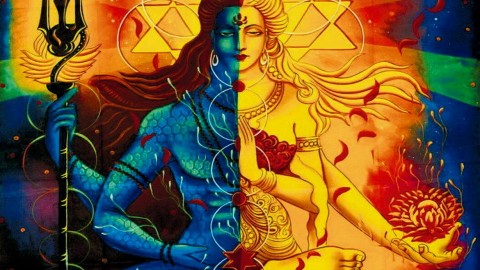Inner Approach – In Gita Verse 18.73 Arjuna said: My dear Kṛṣṇa, O infallible one, my illusion is now gone. I have regained my memory by Your mercy. I am now firm and free from doubt and am prepared to act according to Your instructions.
When asked by the Lord, Arjuna expressed his gratitude, saying, “O Achyuta, by Your grace my delusion has been destroyed, and I have regained my memory. Therefore, I stand without any doubt and will obey Your command.” Each word in this declaration is precious, encapsulating the essence of the Bhagavad Gita. The entire dialogue between Krishna and Arjuna, with its numerous explanations and clarifications, was orchestrated to evoke these few transformative words from Arjuna.
Every Guru aspires to hear such words from their disciples, hoping for that moment of enlightenment when the disciple’s heart is filled with gratitude and clarity. Arjuna’s acknowledgment, “by Your grace, my delusion has been destroyed,” signifies a profound shift. He recognises that his transformation is not due to his own efforts but is a result of Krishna’s blessings.
Achyuta, meaning the unshakeable one, aptly describes Krishna. Despite Arjuna’s numerous doubts and questions, Krishna remained patient, compassionate, and unwavering. This steadfastness is a hallmark of a true Guru, who remains unshaken and can, in turn, provide stability to their disciple. Krishna’s unyielding support and guidance led Arjuna to this moment of realisation.
Arjuna’s admission that his delusion was destroyed by Krishna’s grace, rather than by his own efforts, is significant. It underscores the importance of humility and the recognition that divine grace plays a crucial role in spiritual awakening. Had Arjuna claimed his attachment was destroyed by his own efforts, it would have indicated lingering ego and necessitated further guidance from Krishna. Instead, Arjuna humbly attributes his transformation to Krishna’s blessings, acknowledging that he was undeserving yet received divine grace.
This realisation that true transformation is a result of divine grace rather than personal effort is pivotal. It highlights the dangers of ego, even in spiritual pursuits. An ego refined by penance can be more insidious than the ego of an ordinary person. True enlightenment comes from surrendering to divine grace, not from personal achievements.
Arjuna’s statement, “I have regained my memory,” signifies a return to self-awareness and recognition of his true nature. This remembrance, facilitated by Krishna, dispels all doubts. In the light of self-awareness, doubts vanish, much like darkness dissipates with the rise of the sun. Arjuna now stands firm, unshaken by external forces, embodying the state of Sthitaprajna, where consciousness remains steady and unmovable.
Arjuna’s readiness to follow Krishna’s command marks a significant shift from his earlier state of confusion and resistance. Previously, he was driven by personal desires and attachments. Now, having regained his memory and achieved stability, he is prepared to act according to Krishna’s will, without question. This complete surrender to the Guru’s guidance is essential for true discipleship.
Recognising Krishna as his Guru, Arjuna not only relinquishes control of the chariot but also surrenders himself, allowing Krishna to guide him entirely. This surrender signifies a deep understanding of Krishna’s divine nature and the recognition of his own true self. The disciple’s journey culminates in this moment of complete trust and readiness to follow the Guru’s commands.
Arjuna’s transformation illustrates the power of surrender. By relinquishing his ego and embracing divine guidance, he turns the battlefield into an opportunity for spiritual growth. This shift in approach is crucial for all of us. Our actions and experiences, whether painful or pleasurable, can be transformed into opportunities for creative and spiritual growth.
Creativity is not confined to specific activities like painting or dancing; it is an attitude, an inner approach to life. Anything can be done creatively if approached with joy, love, and mindfulness. Whether it’s cleaning the floor or cooking, bringing a creative quality to any activity makes it divine.
To cultivate creativity, one must embrace both pain and pleasure fully. Pain, often seen as undesirable, can be a powerful catalyst for growth. It sharpens awareness, deepens compassion, and fosters mindfulness. By embracing pain rather than avoiding it, we can transform it into a source of strength and creativity.
Similarly, pleasure, when experienced mindfully, can also lead to spiritual growth. However, it often leads to forgetfulness and distraction. Balancing the experiences of pain and pleasure with intelligence and awareness allows us to use both as tools for creative and spiritual development.
The Bhagavad Gita Verse 18.73 teaches us that true transformation comes from divine grace and the surrender of the ego. By embracing both pain and pleasure with mindfulness and creativity, we can turn every experience into an opportunity for growth. This approach, exemplified by Arjuna’s transformation, offers a path to spiritual enlightenment and a deeper connection with the divine.
Tags: Inner Approach





